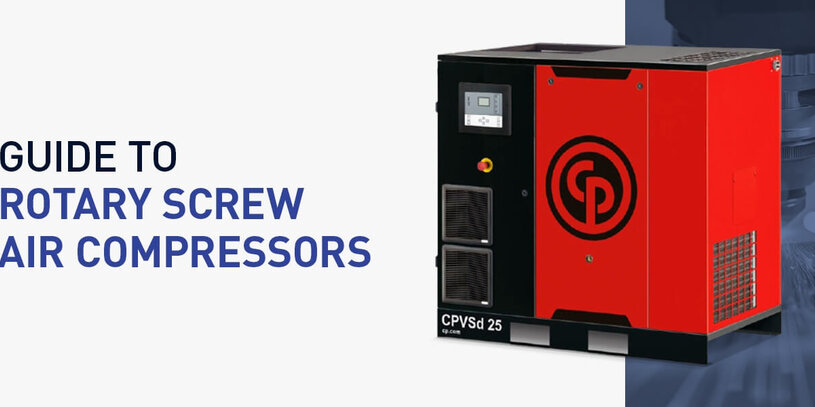The Ultimate Guide to Rotary Screw Air Compressors: Horsepower, Applications, and Maintenance Tips for Industrial Efficiency
Published on:

Understanding Rotary Screw Air Compressors
Rotary screw air compressors are a reliable choice for industries that need a consistent and uninterrupted supply of compressed air. These compressors are typically available in horsepower ranges from 5 HP to 50 HP, ideal for meeting the needs of small to mid-sized manufacturing facilities. With tank capacities often between 100 to 500 liters, many models are designed without large tanks due to their continuous-duty operation, making them perfect for applications with constant air demand.
Advantages of Rotary Screw Compressors
Rotary screw compressors provide several key benefits for industrial applications. Here are some of the primary advantages:
- Continuous Operation: Suitable for industries requiring a consistent air supply.
- Low Maintenance: Fewer moving parts compared to other compressor types mean less wear and tear.
- Energy Efficiency: Designed for higher efficiency in long-term, continuous use.
- High Airflow: Provides a larger air output, making it suitable for large-scale operations.
- Quiet Operation: Generates less noise, ideal for indoor industrial environments.
Common Applications of Rotary Screw Air Compressors
Rotary screw compressors are best suited for industries that require a steady supply of compressed air. Here are some common applications:
- Manufacturing Lines: Provides a continuous air source for operating machinery and automated processes.
- Packaging Industries: Essential for running packaging equipment and pneumatic controls.
- Automotive Industry: Powers pneumatic tools and lifts in automotive manufacturing and repair.
- Food and Beverage Processing: Ideal for applications requiring clean, dry air for food safety standards.
- Pharmaceutical Manufacturing: Used in processes requiring sterile, contaminant-free air.
Factors to Consider When Choosing a Rotary Screw Compressor
Selecting the right rotary screw compressor involves understanding various factors that impact performance and cost-effectiveness. Here’s what to consider:
- Horsepower Requirement: Choose between 5 HP to 50 HP based on your operational demands.
- Tank Capacity: Although many rotary screw compressors are tankless, consider a 100 to 500-liter tank if peak demand requires extra storage.
- Duty Cycle: Continuous-duty design ensures efficient operation for long periods without overheating.
- Compressor Cooling Type: Air- or water-cooled options impact compressor efficiency and suitability for different environments.
- Initial and Maintenance Costs: Weigh initial investment against maintenance needs for a long-term cost-effective solution.
Maintenance Tips for Optimal Rotary Screw Compressor Performance
Proper maintenance is essential for ensuring the longevity of rotary screw compressors. Here are some tips to keep your compressor running smoothly:
- Regular Filter Cleaning: Clean or replace air intake filters to prevent airflow restriction.
- Monitor Oil Levels: Regularly check and replace oil in oil-lubricated models to maintain performance.
- Check for Leaks: Inspect seals and hoses for leaks that can impact efficiency.
- Inspect Cooling System: Ensure cooling fans or water-cooling systems are operational to avoid overheating.
- Professional Servicing: Schedule regular inspections by certified technicians to catch early signs of wear.
Conclusion
Rotary screw air compressors are an excellent choice for small to mid-scale industries requiring a consistent air supply, with horsepower and tank capacity options tailored to various applications. By selecting the right specifications and following a maintenance routine, these compressors can offer efficient, durable service for diverse industrial applications.
